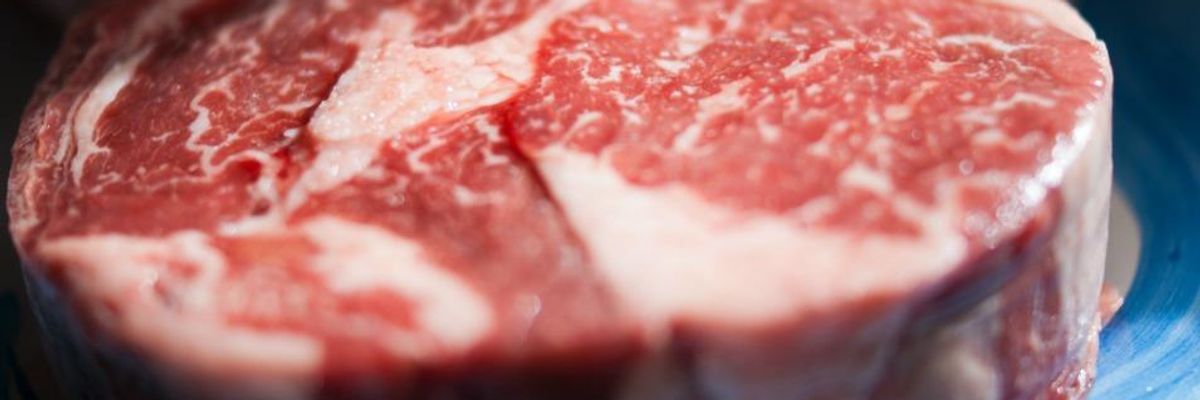The World Trade Organization ruled Monday that U.S. rules requiring labels on packaged steaks, ribs and other cuts of meat identifying where the animals were born, raised, and slaughtered are in violation of trade rules that require imports to be treated no less favorably than domestic products.
In its decision, the WTO said the country-of-origin labels (also referred to as 'COOL') forced meatpackers to segregate and keep detailed records on imported livestock, giving them an incentive to favor U.S. livestock. The WTO ruling was seen as a victory for Canada and Mexico, who had said the meat-labeling rules were protectionist, overly burdensome, and discriminated against livestock exports from their countries. Canada, for example, claims that its cattle and hog industries have lost more than $911.5 million because of COOL.
But watchdog groups said the WTO's decision wasn't in the public's best interest.
"The WTO's continued assault against commonsense food labels is just another example of how corporate-controlled trade policy undermines the basic protections that U.S. consumers deserve," said Food & Water Watch executive director Wenonah Hauter in response to the news. "The United States should appeal the ruling and continue to fight for sensible consumer safeguards at the supermarket."
Lori Wallach, director of Public Citizen's Global Trade Watch, said the ruling speaks to how international trade deals weaken U.S. consumer, environmental and other protections: "Today's ruling spotlights how these so called 'trade' deals are packed with non-trade provisions that threaten our most basic rights, such as even knowing the source and safety of what's on our dinner plate."
What's more, Hauter added, the dispute illustrates how corporate special interests can use the WTO to evade democratic governance. According to Food & Water Watch, the U.S. meatpacking industry has unsuccessfully opposed COOL rules in Congress, the executive branch, and the courts for the last 15 years.
"The meatpacking lobby has lost the COOL debate from the court of public opinion to the Court of Appeals to the halls of Congress so they are taking their complaint to the faceless unelected bureaucrats in Geneva," she said. "When the meat cannot get its way here in America, it is trying to use the WTO to overturn the will of the American people."
The Office of the U.S. Trade Representative said it was "considering all options," including an appeal, the Associated Press reports. The U.S. has one chance to appeal before the WTO issues a final, binding ruling. Under WTO rules, if the U.S. appeal fails, Canada and Mexico would be authorized to impose indefinite trade sanctions against the U.S. unless or until the U.S. government changes or eliminates the COOL policy.

